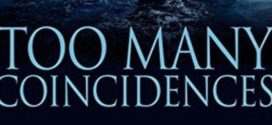Leadership and management are the abilities that anyone who wants to be in an administrative position needs to master. Actually, all of us, plays different roles in our lives at different stages/places.
At office, you may be a sub-ordinate, but for your immediate family you are the head-of-the-house. Your household decisions might be taken by the elder family members, but may be kitchen is your domain. Your parents take decisions about your school and other stuff, but in the class you may be the prefect/monitor. You may be just another student in the class, but in the sports team, you may be a captain. So, in my opinion, everyone needs to lead from the front at some point in life. And thus, the lessons of Leadership and Success must have been learnt by us all.
Recently, we came across a series of books in – Spirituality for Leadership and Success – by Pranay.
| Book Title | : | GITA: Spirituality for Leadership and Success |
| Author | : | Pranay |
| Publisher | : | Fingerprint! Publishing (11 November 2020) |
| # of Pages | : |
168 (Paperback) 983 KB; 32 (Kindle EBook) |
| # of Chapters | : | 26 |
| Purchase Link(s) | : |
From our team, I got a chance to read GITA: Spirituality for Leadership and Success, in the same series. Anything that is related to Gita or Mahabharat/Mahabharata fascinates me, so I grab the opportunity and here are my personal and unbiased views and reviews for the same.
This Is Here In For You
Book Cover:
Let us take a look at the cover page of this book.

GITA: Spirituality for Leadership and Success By Pranay | Book Cover
All the books in this series are having very attractive cover pages.
Clear white outer background gives a simple yet rich look to the cover page. In the center part you will find “pink to blue” shades of colors in the form of an artwork. in within that you see an illustration of Lord Krishna giving the Gita-gyan to Arjun. The clear fonts used for the book title and the author name adds a positive impact to this clean and colorful cover page.
I like this simple yet impressive cover page a lot.
The Book And My Views For The Same:
Usually we talk about any book in two distinguished segments. In one segment we share a bird’s eye view of the story, and in the other, our views and reviews for the same. The nature of this book is quite different, so we are merging both these segments here.
The battleground of Kurukshetra signifies the day-to-day hurdles and incidents we goes through. Sometimes we find ourselves caught with the same dilemma Arjun was possessed by. And, when you are in the leadership role, you need to think clearly and decide what is greater good for the group you lead/represent at that moment.
So, consider Gita as a source of leadership lessons is a very logical decision. And, being a set of wisdom and spiritual verses, it allows you to think beyond the material and mortal world. It thus helps you in detach yourself from insignificant (in greater terms) things and decide your spiritual path as well. The following passage in the book, talks about the same:
Detach yourself from the past, and then only can you look at things and act as if you have a new being. It is almost like a rebirth of vision. In Hinduism it is called being “dwija”, born again.
In addition to explaining the concept of “Dwija” the thought also reflects the following verse of Gita.
सुखदुःखे समे कृत्वा लाभालाभौ जयाजयौ।
The Dwija explanation could have been taken forward and explained why Brahmins are known as Dwija. Actually the “Yagnopavit Upanayan Sanskar” or “Sacred Thread Ceremony” is a starting of the new birth for a Brahmin kid. He, then is expected to devote his life in learning for the greater good of everyone. Even, a person’s name can be changed during this ceremony.
The author’s thoughts of listing the lessons in the same context from “Gita” are thus significant. He says:
The Gita is perhaps the most balanced mix of both the practical and cosmically profound aspects of our existence. It is the “art of war” as well as the art of inner peace.
Some people may think that, even if significant and logical, the messages conveyed by Lord Krishna to Arjun may not fit in the current time/environment of scenario you caught-in. The answer is pretty simple, such verses possess the timeless knowledge. What you need is the right interpretation.
The author says:
People often get misguided by old concepts, frozen in their mindsets.
And here, he means the necessity of having an open mind. Our Vedic scriptures tells us:
तन्मे मनः शिवसंकल्पमस्तु
We need to develop our mindset in a way that we get positive and blissful thoughts in our mind. As, mind is the most powerful medium. If not controlled properly, it can play tricks with the person him/herself also. And, to move ahead, you need to leave the place and time behind. If you keep living in the same time/place, your progress would be stopped. It is applicable in both, the material and the spiritual worlds, at the same extent.
And why we think too much before taking a bold step? Well, we worry about the outcome. The author says:
The understanding of change leads to unattached and dynamic action, and overcoming fear of what may or may not happen.
That is a loose adaptation of the famous verse from Gita.
कर्मण्येवाधिकारस्ते मा फलेषु कदाचन ।
मा कर्मफलहेतुर्भुर्मा ते संगोऽस्त्वकर्मणि ॥
It neither detaches your from the responsibility nor proof you from the consequences of your actions. It simply says that “Karma” or action is the only thing that you can control. The consequences may have input from many other sources. Not all your marketing campaigns or future plans succeed at the outcome level expected. But, that doesn’t mean you shouldn’t act. And, you also are responsible for all the good/bad outcome also. This is the way of life, and this is how you need to manage the things.
It also doesn’t tell you do the things blindly, of course you have to analyse the things at the maximum possible level based on the time/resources you have and have to plan according your best educated input.
At the same time, each person/generation has his/her/its limitations. The author says:
Each generation has its own pain points, and a good leader knows how to address those.
Very true.
I like the way the author has defined a great person (and ideally a great leader has to be a great person).
A great person is simple one who can activate the deeper levels of themselves in whatever they are doing.
As we know, Indian way of life talks more about the greater and non-material aspects and even the life-after-death and ever-living soul. It is thus talk about self-realization and knowing one’s own self finding answers within. Even, the theory of “Chakras” and awakening them is a part of the same.
In author’s own words:
Discover the divinity within your own being; that is the ultimate secret of the text. And you can only discover it when you are prepared to go beyond the conditioned confines of thought, and enter the world of spirit and heartfulness which are the greatest parts of yourself.
The book also talk about the tale of Nachiketa and Katha Upanishada.
The most important lesson from the book is a simple yet powerful one-liner.
Never Think You Know Everything
I like the way the author takes the discussion to another level. He indirectly says “dharma” is much more than just “religion”. And the same rules applied to the leadership also. With the context of the conversation between Arjun and Krishna, the author says:
The problem that has happened in religion and in leadership both, has been that man has taken upon himself a very central role; he feels he is the most important thing in existence! And by showing how insignificant human beings are in the scheme of the universe, the Lord shows Arjun that greatness must begin with simplicity, with humility.
I also like the way the author has referred to this Q/A session (Gita) in the language the current generation can relate much to.
Krishna hammers Arjun at a psycho-spiritual level into realizing that none of us as human beings really matter in a material way. …
The author has reflected balanced thoughts. He also has rightly suggested to remember, when to put a limit.
Thoughts can lead to logic, thought can lead to understanding a concept in principle, but thought can also lead to confusion and dogmatic thinking.
While planning is really essential, too much of it may lead to absence of actions. And, that is more dangerous.
If I had to pick one quote from the book, that every leader needs to remember, I will settle for the following.
As Krishna tells Arjun: “Whatever a great person does, others follow.”
My main purpose of including some quotes from the book is to give you a fair idea about the quality of writing without including spoilers. That’s why I had to leave so many points in this discussion. But, you must have got an idea about the book by now.
Summary:
A nice and enriching book that talks about spirituality and modern day management. Such books are not meant for time pass reading. You need to run a cycle to re-read and implement the thoughts in actions, to get the most of it. If you plan to do so, go for this book.
ThinkerViews Rating:
Around 7 out of 10.
Quick Purchase Links:
- Buy – GITA: Spirituality for Leadership and Success By Pranay – Paperback – Amazon India
- Buy – GITA: Spirituality for Leadership and Success By Pranay – Paperback – Amazon US
Over To You:
If you already have read the book do share your remarks and thoughts via comments below. Does this review help you in making your decision to buy or read the book? Do not forget to share this article with your friends over various social networks via Twitter, Facebook and others. And yes, you may like to subscribe to our RSS feeds and follow us on various Social networks to get latest updates for the site to land right in your mail box.
 ThinkerViews – Views And Reviews Personal views and reviews for books, magazines, tv serials, movies, websites, technical stuff and more.
ThinkerViews – Views And Reviews Personal views and reviews for books, magazines, tv serials, movies, websites, technical stuff and more.



